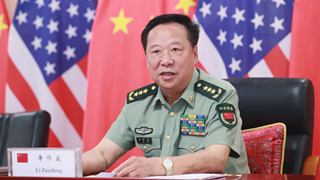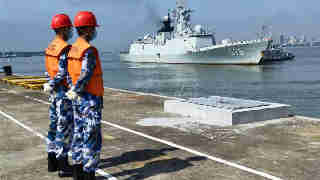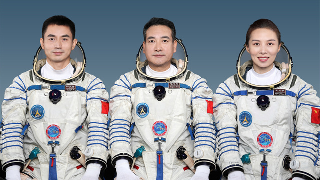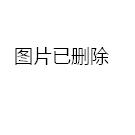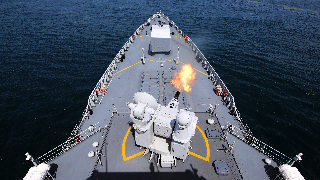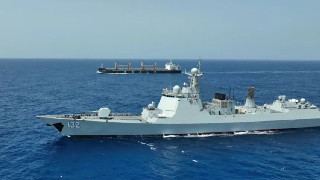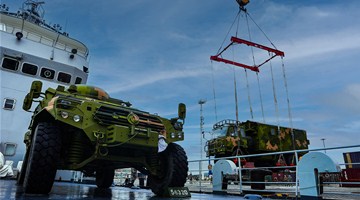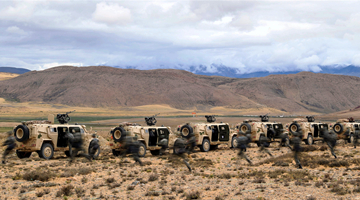By Zhan Debin
Kim Sung-han, head of the National Security Office in ROK's new streamlined presidential office, generalized during the election President-elect Yoon Suk-yeol’s foreign policy as “self-strengthening based on international solidarity”. As soon as he took office, the new president was busy strengthening the US-Japan-ROK trilateral cooperation, jointly initiating the “Indo-Pacific economic framework”, and trying to join the Quad. He also attended the NATO summit and the “Japan-ROK-Australia-New Zealand summit”, and hoped to host a “summit for democracy” in the future. Apparently, the so-called “international solidarity” that the ROK is engaged in are multilateral mechanisms and activities more or less targeted at China. Many media and experts in the country are worried that these moves would cause discontent in China sooner or later, but the Yoon Suk-yeol administration has come up with a self-convincing narrative.
Some people in the ROK government said, China didn’t respect the ROK in the past and interfered in its internal affairs, but the previous administration succumbed to its pressure. According to them, China dared to fight back against the ROK on the THAAD issue exactly because Seoul was not united enough with Washington and Tokyo. If it was, China would have changed its tune and set greater store with the ROK. Therefore, they came to the conclusion that the ROK should take a more active part in the multilateral framework dominated by the US-led West to contain China. They are confident that China wouldn’t single out the ROK from the multilateral framework because once it did, the other countries would rally around the ROK against it. That’s typical “group fight” thinking – against China.
And this logic is riddled with holes, especially as it is putting the cart before the hose. In recent years, China and the ROK had some frictions over the deployment of THAAD in the ROK, but China, which was forced to take countermeasures, was obviously not to blame as it was the ROK that was willingly reduced to being a pawn in America’s anti-China strategy. Some senior officials in the incumbent ROK government even asked China vis-à-vis to maintain the so-called “rules-based international order”. The conflict between China and the ROK has nothing to do with an international order, and they have no fundamental conflict of interests either. It seems Seoul is intentionally creating a narrative of standing against China, which is not in either party’s interests, perhaps with more negative impacts on Seoul itself.
Not only did the ROK fabricate an excuse for itself, but it has concocted a prescription that is nevertheless wrong. Some people in ROK hold the illusion that if the country takes the initiative to decouple China and stand against it, its show of allegiance to the US-led West could earn economic growth, national security, and China’s respect. This cannot be more wrong! The security dilemma faced by the ROK cannot be resolved by leaning toward the West and introducing American weapons and equipment. At the moment, the environmental impact assessment for the THAAD base is on the agenda, sending a key signal that the Yoon Suk-yeol government will move on with the deployment of THAAD. Now that Seoul is ready to let Washington drive a wedge between it and China – at the expense of its own interests, does it think the US will stand up for it when something really happens?
The ROK government repeatedly claimed that it didn’t join the cliques to repel or target any specific country or region. Well, that sounds lame even to its own ears. Luckily, the new administration hasn’t officially announced its China policy yet, but its words and deeds so far are nothing but troubling and there are signs that its China policy is heading in the wrong direction. China and the ROK are close neighbors and inseparable partners. Facts have proven that a good bilateral relationship benefits both countries and their peoples, and promotes regional peace and development. China supports the ROK in playing a more positive role on the international stage, and wishes to work together for positive peace in Northeast Asia rather than passive peace based on block confrontation. Confrontation is not in China’s interests, much less in the ROK’s. Seoul should be aware of the nature of China-ROK relations and avoid blindly following the US-led West in its China policy.
(The author is a professor and director at the Center for Korean Peninsula Studies(CKPS), Shanghai University of International Business and Economics.)
Editor's Note: This article is originally published on huanqiu.com, and is translated from Chinese into English and edited by the China Military Online. The information, ideas or opinions appearing in this article do not necessarily reflect the views of eng.chinamil.com.cn.
